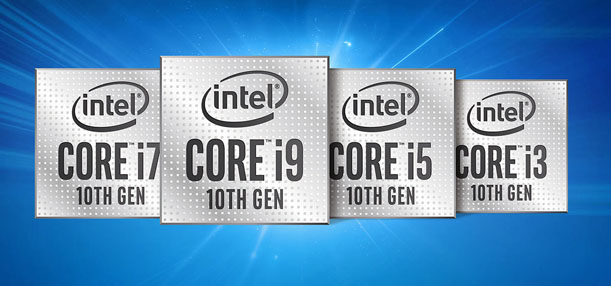Intel acquires Moovit for $900m
- May 6, 2020
- imc

Intel has acquired Moovit, a mobility-as-a-service (MaaS) company, for approximately $900m. Moovit is known for its urban mobility app that offers travellers around the world multimodal trip planning by combining public transportation, bicycle and scooter services, ride-hailing, and car-sharing.
The addition of Moovit brings Intel’s Mobileye closer to achieving its plan to become a complete mobility provider, including robotaxi services, which is forecast to be an estimated $160bn market by 2030.
“Intel’s purpose is to create world-changing technology that enriches the lives of every person on Earth, and our Mobileye team delivers on that purpose every day,” said Bob Swan, Intel CEO. “Mobileye’s ADAS technology is already improving the safety of millions of cars on the road, and Moovit accelerates their ability to truly revolutionise transportation – reducing congestion and saving lives – as a full-stack mobility provider.”
Moovit has established its position in the MaaS space with more than 800 million users and services in 3100 cities across 102 countries.
Today, Mobileye is an automotive partner that enables advanced driver-assistance systems (ADAS) deployed on nearly 60 million vehicles with more than 25 automaker partners. Mobileye is a growth engine for Intel as the company transforms for a world where the exponential growth of data fuels demand for technology that can process, move and store more data faster.
Intel is investing and expanding to serve new data-rich market opportunities, including the fast-growing market for ADAS, data and MaaS technologies, which together represent an opportunity totalling more than $230bn by 2030. Upon close, Moovit will join the Mobileye business while retaining its brand and existing partnerships.
“Moovit’s massive global user base, proprietary transportation data, global editors community, strong partnerships with key transit and mobility ecosystem partners, and highly skilled team is what makes it a great investment,” said Amnon Shashua, CEO of Mobileye. “Moovit is a strong brand trusted by hundreds of millions of people globally. Together, with Mobileye’s extensive capabilities in mapping and self-driving technology, we will be able to accelerate our timeline to transform the future of mobility.”
Moovit was founded in 2012 and is based in Tel Aviv, Israel, with approximately 200 employees. It combines information from public transit operators and authorities with live information from the user community to offer travellers a real-time picture of the best route for their journey.
In the past two years, Moovit has achieved a sevenfold increase in users. Moovit has also signed strategic partnership agreements with major ride-sharing operators and mobility ecosystem companies for analytics, routing, optimisation and operations for MaaS.
With this acquisition, Mobileye will be able to use Moovit’s proprietary transportation dataset to optimise predictive technologies based on customer demand and traffic patterns, as well as tap into Moovit’s transit data repository of more than 7500 key transit agencies and operators, and improve the consumer experience for more than 800 million users worldwide. Moovit’s consumer applications and user experience will continue under its own brand.
“We are excited to join forces with Mobileye and lead the future revolution of new mobility services,” said Nir Erez, Moovit co-founder and CEO. “Mobility is a basic human right and, as cities become more crowded, urban mobility becomes more difficult. Combining the daily mobility habits and needs of millions of Moovit users with the state-of-the-art, safe, affordable and eco-friendly transportation enabled by self-driving vehicles, we will be able to make cities better places to live. We share this vision and look forward to making it a reality as part of Mobileye.”
Intel acquired Mobileye in 2017. Since then, Mobileye revenues have more than doubled on the increased adoption of ADAS based on Mobileye’s technology. Its vision-safety technology aims to make roads safer, reduce traffic congestion and save lives. Mobileye provides a complete autonomous vehicle stack that provides agility and safety, and copes with a wide variety of driving complexities.
Mobileye’s business model encompasses the entire automated driving value chain, including the front-facing camera that powers most of today’s ADAS, conditional autonomy – also known as level 2+ – and the self-driving system for self-driving shuttles and robotaxis as well as consumer autonomous vehicles. It has strong performance in every one of these categories with vision sensing technology, crowd-sourced mapping capability and the responsibility-sensitive safety driving policy.
• Intel’s tenth-generation Core processors provide a solid foundation for IoT platforms, with up to ten cores and 20 threads for throughput, LGA socket scalability and embedded use conditions, plus long-term product availability.

Retail, industrial, healthcare, gaming and entertainment sectors can all benefit from the processors for 35 to 65W TDP for a wide variety of uses, including:
- Digital signage embedded with artificial intelligence (AI) and analytics that provide real-time data about the audience, their traffic patterns and which messages work best;
- Self-service kiosks that enhance customer experience through computer vision and deep learning;
- Medical imaging, such as mobile imaging for in-patient or distributed healthcare workflows;
- Intelligent shelving and point-of-sale devices that collect and analyse inventory throughput;
- Robots with computer vision and deep learning performance;
- Multifunction industrial PCs connected to multiple HD cameras for near-real-time anomaly detection or asset tracking; and
- Smart casino gaming tables that track bets and active play with computer vision and AI.
Intel’s virtualisation technology lets users converge workloads and optimise resource use by virtualising CPU, memory and IO. Built-in hardware accelerators boost computer vision performance and allow for compute blocks dedicated to inferencing for enhanced AI performance.
The Intel Media SDK and distribution of OpenVino toolkit, along with the inference engine high-density deep learning plug-in, provide tools to design and streamline AI workloads and capabilities.




